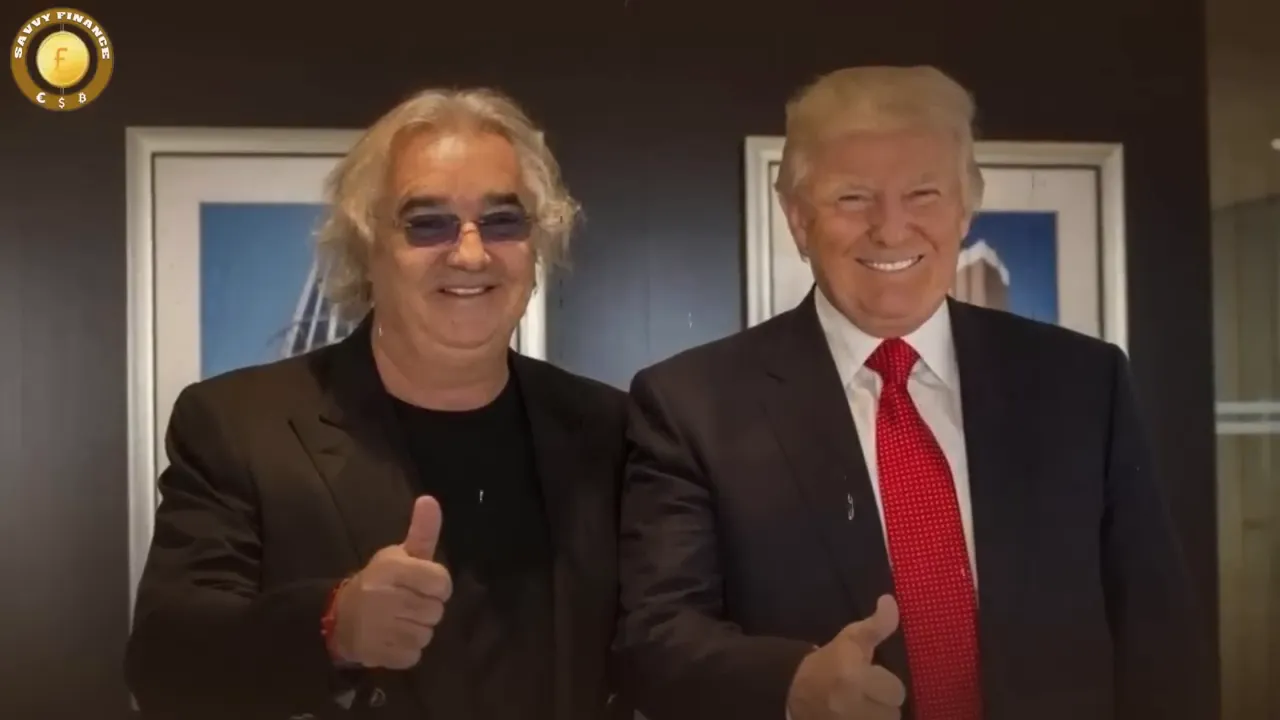
In the shadowy corridors of global power lies a network so deeply entrenched in secrecy and influence that its exposure threatens to shake the foundations of politics, finance, and society itself. At the heart of this labyrinth is the Jeffrey Epstein scandal, a story that has unraveled connections to royals, presidents, billionaires, intelligence agencies, and even the burgeoning worlds of cryptocurrency and bitcoin. This article dives into the meticulous investigations by journalist Whitney Webb, who exposes the intertwined systems of organized crime, intelligence operatives, and elite financiers operating above the law.

Table of Contents
- The Epstein Black Book: More Than Just Contacts
- Flavio Briatore and the Trump Connection
- The Epstein Scandal and Trump’s Political Reversal
- The Shadowy Interplay of Intelligence, Organized Crime, and Finance
- Roy Cohn’s Legacy and the “Favor Bank”
- The Ongoing Cover-Up and Why It Matters
- Cryptocurrency, Bitcoin, and the Hidden Financial Networks
- Conclusion: The Call to Listen and Demand Transparency
The Epstein Black Book: More Than Just Contacts
One of the most revealing pieces of evidence in the Epstein saga is the infamous “Black Book,” a compilation of contacts maintained not solely by Epstein himself but by several members of his Palm Beach staff. This book was significant enough to be used as evidence in Ghislaine Maxwell’s trial and offers a snapshot of the influential figures frequently connected to Epstein’s world during critical periods.
Alfredo Rodriguez, Epstein’s former butler, played a pivotal role in bringing this book to light. Before his death in prison in 2015, Rodriguez attempted to sell the Black Book to victim lawyers, highlighting certain names by circling them. These were not mere acquaintances but individuals Rodriguez believed to be coconspirators and material witnesses to Epstein’s sex trafficking crimes. Among the circled names were:
- Flavio Briatore – Italian businessman and longtime friend of Donald Trump
- Alan Dershowitz – High-profile attorney
- Leslie Wexner – Epstein’s main benefactor
- Jean Luc Brunel – French associate who died under suspicious circumstances
- Donald Trump – Former U.S. President
Despite the gravity of these annotations, no formal investigation was launched into why these names were circled, and Rodriguez died in custody under unclear circumstances the same year the book became public. The silence surrounding these events raises troubling questions about accountability and transparency.
Flavio Briatore and the Trump Connection
Flavio Briatore, well-known in the worlds of Formula One racing and celebrity circles, shares a long history with Donald Trump. Their friendship was publicly visible when Briatore starred in the Italian edition of The Apprentice, a show Trump himself helped produce internationally.
But Briatore’s links to Epstein’s circle deepen the intrigue. His name, among others, appears circled in the Black Book, suggesting a closer involvement than publicly acknowledged. This connection is emblematic of the broader web tying powerful figures together, often shielded from scrutiny by wealth and influence.

The Epstein Scandal and Trump’s Political Reversal
During his 2024 presidential campaign, Donald Trump hinted at “explosive revelations” regarding Epstein’s client list, promising to expose elite predators. Yet, since reentering office, he has distanced himself entirely from the Epstein scandal, denying the existence of the client list he once vowed to reveal.
Whitney Webb’s investigations suggest this silence might not be mere self-preservation but an effort to protect powerful friends implicated in the scandal. The names circled in the Black Book and the lack of media coverage around Trump’s connection indicate a deliberate suppression of information.

The Shadowy Interplay of Intelligence, Organized Crime, and Finance
What makes the Epstein case uniquely disturbing is how it exposes the convergence of intelligence agencies, organized crime syndicates, and high-level financiers operating as a unified system. Epstein himself was an FBI informant, and others connected to the scandal, such as Peter Thiel, were also reportedly informants during critical periods.
This network’s influence extends beyond illicit activities into shaping political alliances and economic policies, including the steadfast U.S. support for Israel despite significant political costs. Analysts argue that Epstein’s ties and potential blackmail have constrained political figures, including Trump, limiting their ability to shift foreign policy without risking scandalous revelations.
Roy Cohn’s Legacy and the “Favor Bank”
Donald Trump’s rise cannot be fully understood without considering the mentorship of Roy Cohn, a notorious mob lawyer with deep ties to organized crime and political power brokers. Cohn’s influence introduced Trump to a system of backroom deals dubbed the “favor bank,” where political and business favors are exchanged to consolidate power.
This system is reflected in Trump’s business ventures, such as his controlling stake in Resorts International, a company with known organized crime affiliations and CIA connections. Financial bailouts from powerful banking interests like Wilbur Ross further illustrate the complex web sustaining Trump’s empire.

The Ongoing Cover-Up and Why It Matters
Many names connected to Epstein have quietly faded from headlines, not because the evidence is lacking, but because these connections lead to protected networks unwilling to be exposed. The Epstein scandal is not an isolated case but a thread in a vast tapestry connecting government agencies, financiers, media executives, and intelligence operatives.
Whitney Webb’s work, drawing from court documents, declassified files, and firsthand testimony, reveals these orchestrated silences and fragmented narratives. The story’s true danger lies in unveiling the machinery that enabled Epstein’s crimes and the powerful individuals who remain shielded behind layers of secrecy.

Cryptocurrency, Bitcoin, and the Hidden Financial Networks
While not the main focus, the Epstein network’s influence touches the rapidly evolving world of cryptocurrency and bitcoin. As these digital assets reshape global finance, the same elite networks seek to maintain control, often operating behind the scenes to manipulate markets and policies.
Understanding the Epstein scandal’s financial underpinnings helps contextualize the broader struggles within cryptocurrency and bitcoin communities, where transparency and decentralization clash with entrenched interests.
Conclusion: The Call to Listen and Demand Transparency
The Epstein scandal is far more than a tale of individual crimes; it is a window into a systemic sickness at the heart of global power. The connections between Epstein, powerful political figures like Donald Trump, intelligence agencies, and organized crime reveal a network that operates with impunity, protected by silence and complicity.
As citizens invested in the future of cryptocurrency, bitcoin, and global governance, it is imperative to remain vigilant. When stories like these go quiet, it is time to listen more carefully, ask difficult questions, and demand accountability from those who shape our world behind closed doors.
Who really is being protected? And why is the truth still buried beneath layers of secrecy? The answers may redefine our understanding of power and corruption in the 21st century.

This Might Be the GREATEST Cover Up in History: Unveiling the Epstein Network and Its Ties to Cryptocurrency, Bitcoin, and Global Power. There are any This Might Be the GREATEST Cover Up in History: Unveiling the Epstein Network and Its Ties to Cryptocurrency, Bitcoin, and Global Power in here.
